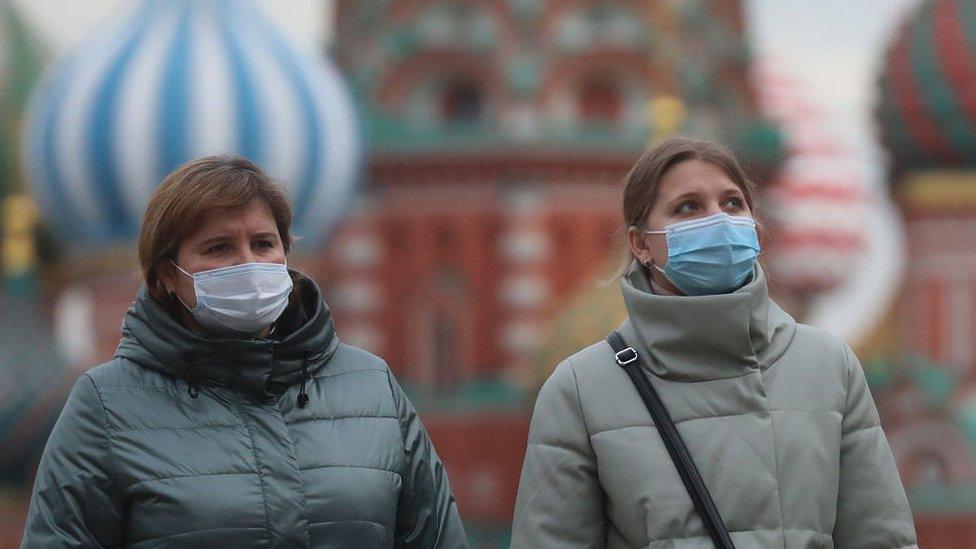Covid: France returns to lockdown amid new surge
- Published
New lockdown drains Paris streets of life
France is now in a new national lockdown that will last at least a month as it aims to curb one of Europe's biggest coronavirus surges and ease the pressure on its hospitals.
There were record traffic jams around Paris on Thursday evening, with many people heading for rural accommodation, but now the queues are much shorter.
The capital's streets are, however, busier than during the March lockdown.
Schools and workplaces remain open, but people need permits to leave home.
The downloadable exemptions are for essential shopping, trips for medical reasons or for getting to work. Home-working is urged wherever possible.
People are also allowed to go out for exercise - for a maximum of an hour - in their local area. The fine for breaking the rules is €135 (£122).
The French government has issued stricter hygiene rules for schools: they must keep class sizes small and masks are now required from the age of six.
What's the latest in France?
Traffic jams stretched to a cumulative 430 miles (700km) in the Ile-de-France region on Thursday evening, local media reported.
Allow X content?
This article contains content provided by X. We ask for your permission before anything is loaded, as they may be using cookies and other technologies. You may want to read X’s cookie policy, external and privacy policy, external before accepting. To view this content choose ‘accept and continue’.

Anna, 24, told Le Figaro newspaper that she had left her family's Paris apartment for their second home in Bernay in northern France. She said spending the first lockdown in Paris was "psychologically hard" - but in Bernay, "the air is cleaner, we breathe, we feel free".
Some travellers may have also been Parisians returning to the city after holidaying elsewhere in the country during a French school holiday, which ends this weekend with All Saints' Day.
Heavier-than-usual traffic and long tailbacks were also reported around Lyon and Bordeaux in the hours before the lockdown came into force.
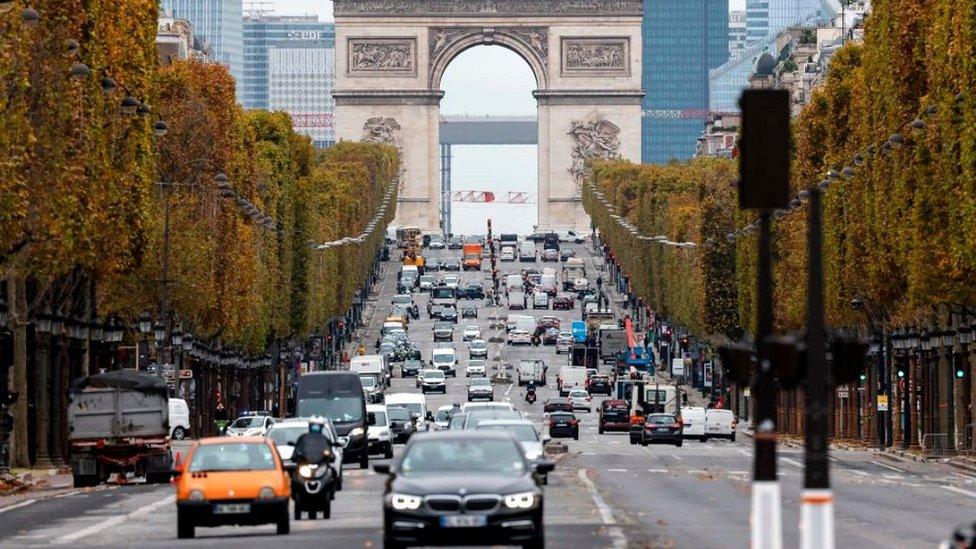
Traffic is heavier in France than during the first lockdown
On Thursday, France declared 47,637 new daily infections and 235 Covid-related deaths. The infection rate is among the highest in Europe.
President Emmanuel Macron earlier said the country risked being "overwhelmed by a second wave that no doubt will be harder than the first".
The French government expects a contraction in gross domestic product (GDP) of 11% in 2020 because of the coronavirus pandemic.
The country is also on a heightened terror alert after a militant Islamist killed three people in a cathedral in the southern city of Nice.
France lockdown: 'It's hard to think we're once again stuck at home'
What measures are other European nations taking?
Much of Europe is battling with soaring infection rates. Germany will introduce "lockdown light" measures on Monday, with tighter restrictions on people's movements, though not as tough as the French regime.
Poland now has its highest level of restrictions to date, with public gatherings banned, most schools closed and restaurants and cafes only offering take-away service.
The country reported 21,629 new coronavirus infections in the past 24 hours, a record in its crisis so far, and the number of confirmed Covid deaths was 202, the health ministry said. Poland's second wave of infection is much bigger than the first back in spring.
European Commission President Ursula von der Leyen said the EU had set aside €220m to help transfer Covid patients from hard-hit member states to other nations with spare hospital beds. The Netherlands has already arranged to send some patients to Germany.
She also called for EU states to pool their coronavirus data, and urged them not to close their borders to each other.
But she said that "we don't encourage travel now", and that people should only be travelling abroad if their trips were essential.
During a video call with EU leaders, Ms von der Leyen also said work should now begin on preparing the infrastructure for a mass-vaccination programme, to be ready for when vaccines are approved.
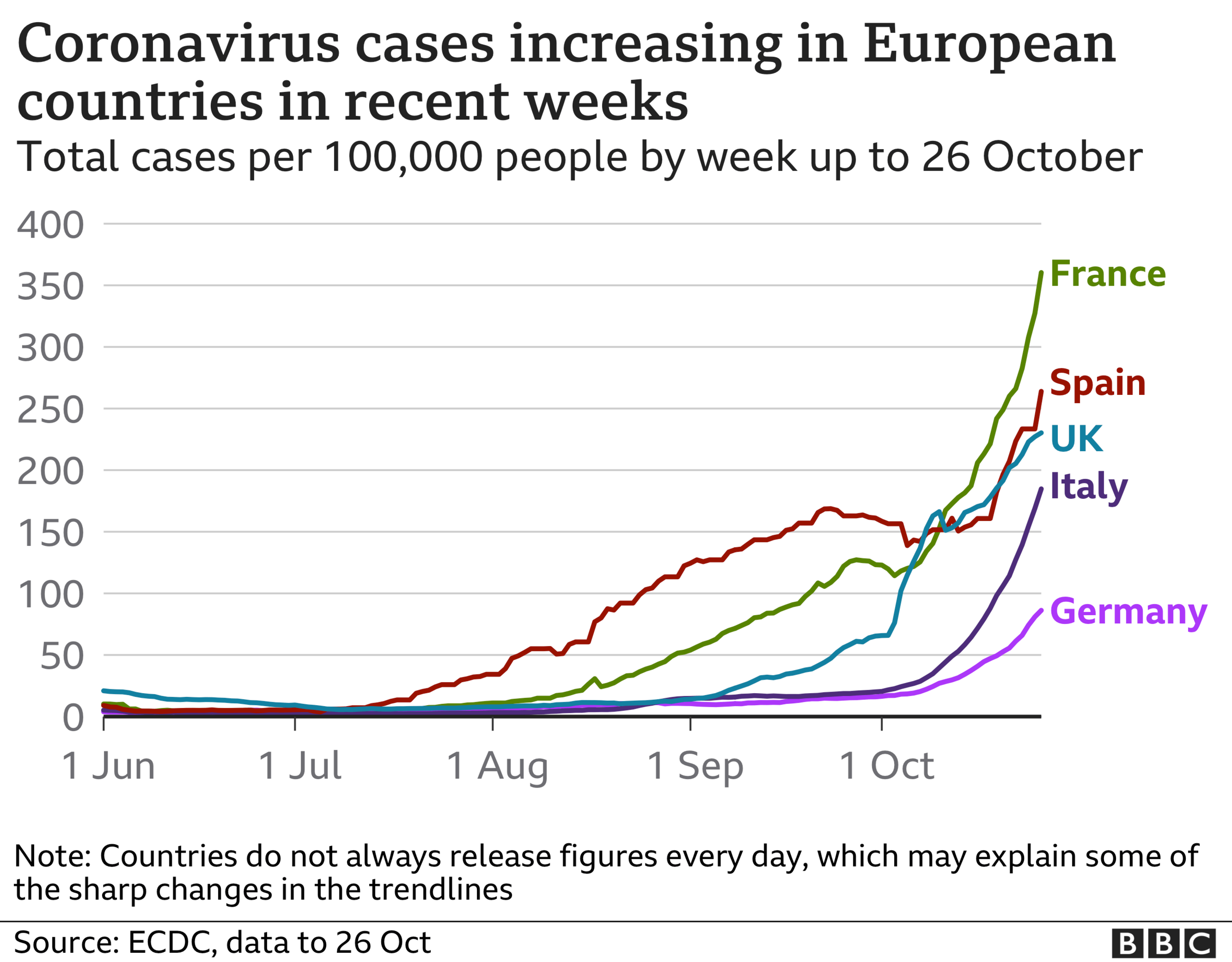

Elsewhere in Europe:
Thirteen of Spain's 17 autonomous regions have now stopped movement in and out of their areas. Valencia is the latest to close its borders for the next week
Almost all of Austria has turned red on its four-level at-risk traffic light system. That means outbreaks are out of control and the virus is widespread
Greeks are waiting to hear what PM Kyriakos Mitsotakis will announce today - with medical experts warning that tough measures are required. He is keen to avoid a national lockdown, so overnight curfews are most likely
Belgians are braced for more restrictions to be announced on Friday, as more than half the country's 2,000 intensive care beds are full
Russian infections have surged to a record 18,283, with 355 new deaths.
Gavin Lee reports on the situation in Belgium

VACCINE: How close are we?
LONG COVID: Who is more likely to get it?
ARTIFICIAL ANTIBODIES: How they could be used to fight the virus

- Published30 October 2020
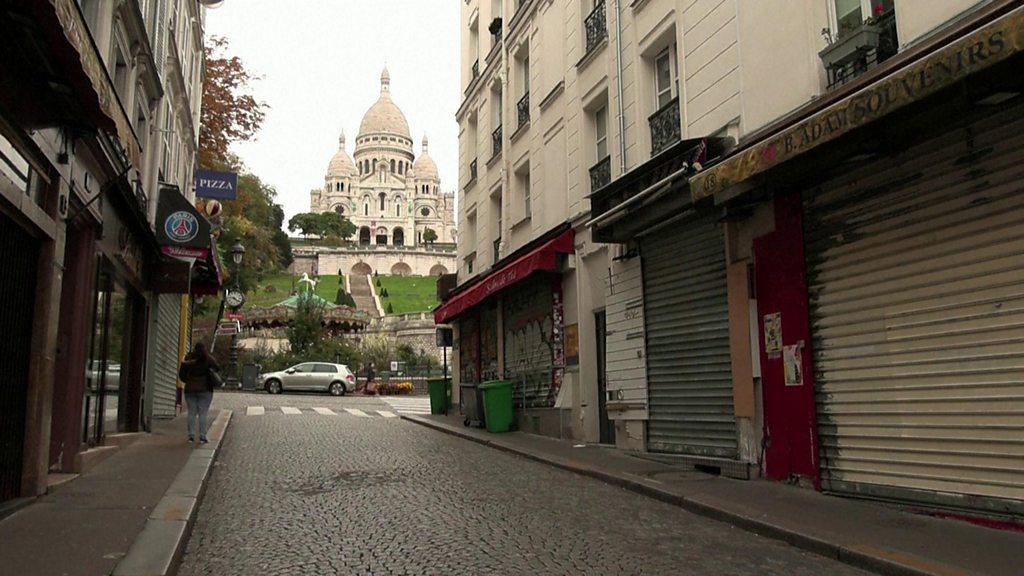
- Published25 June 2021
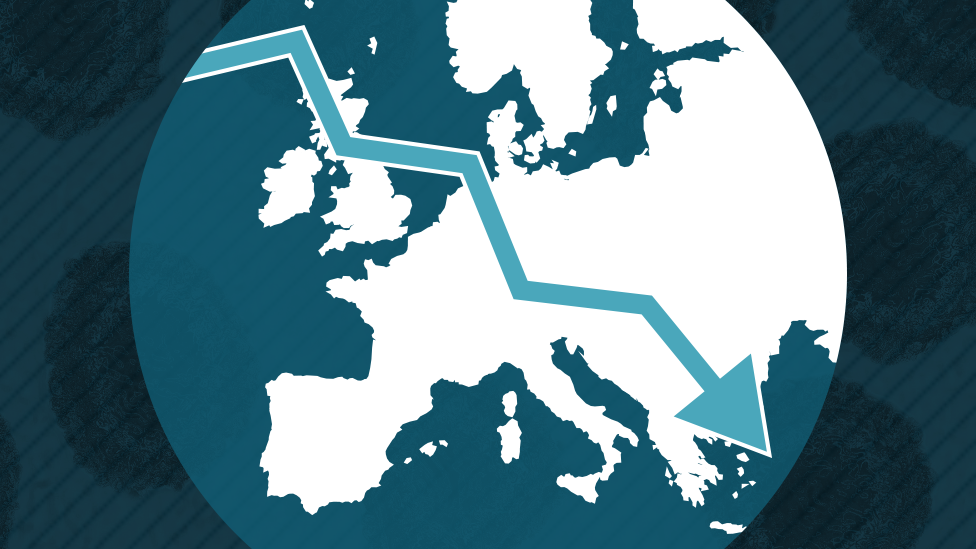
- Published5 July 2022

- Published29 October 2020
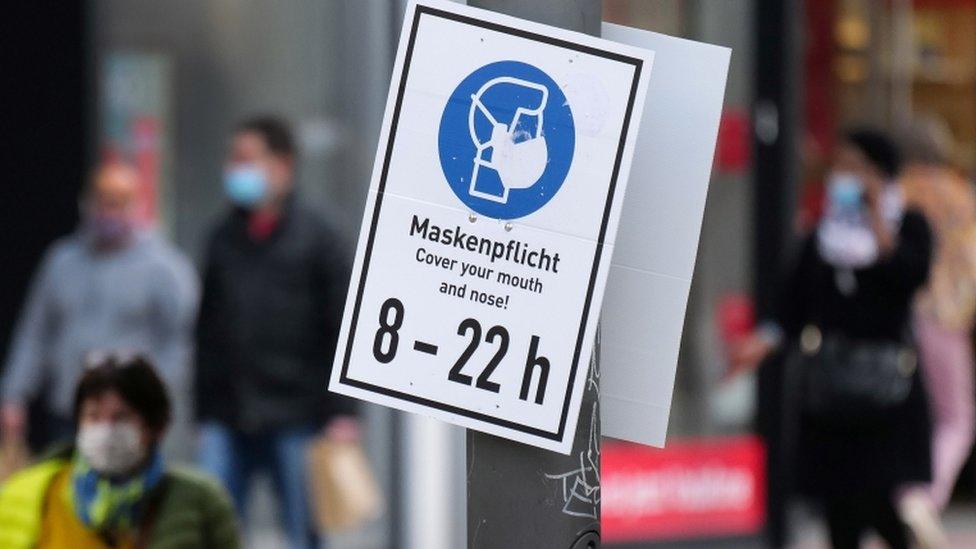
- Published27 October 2020
